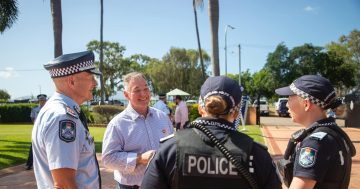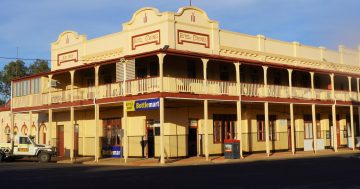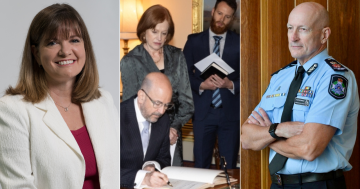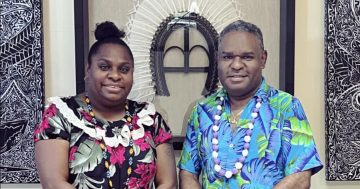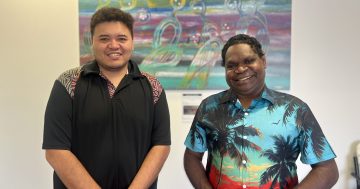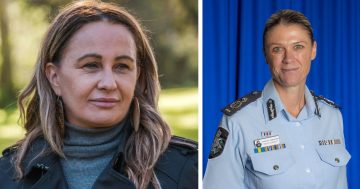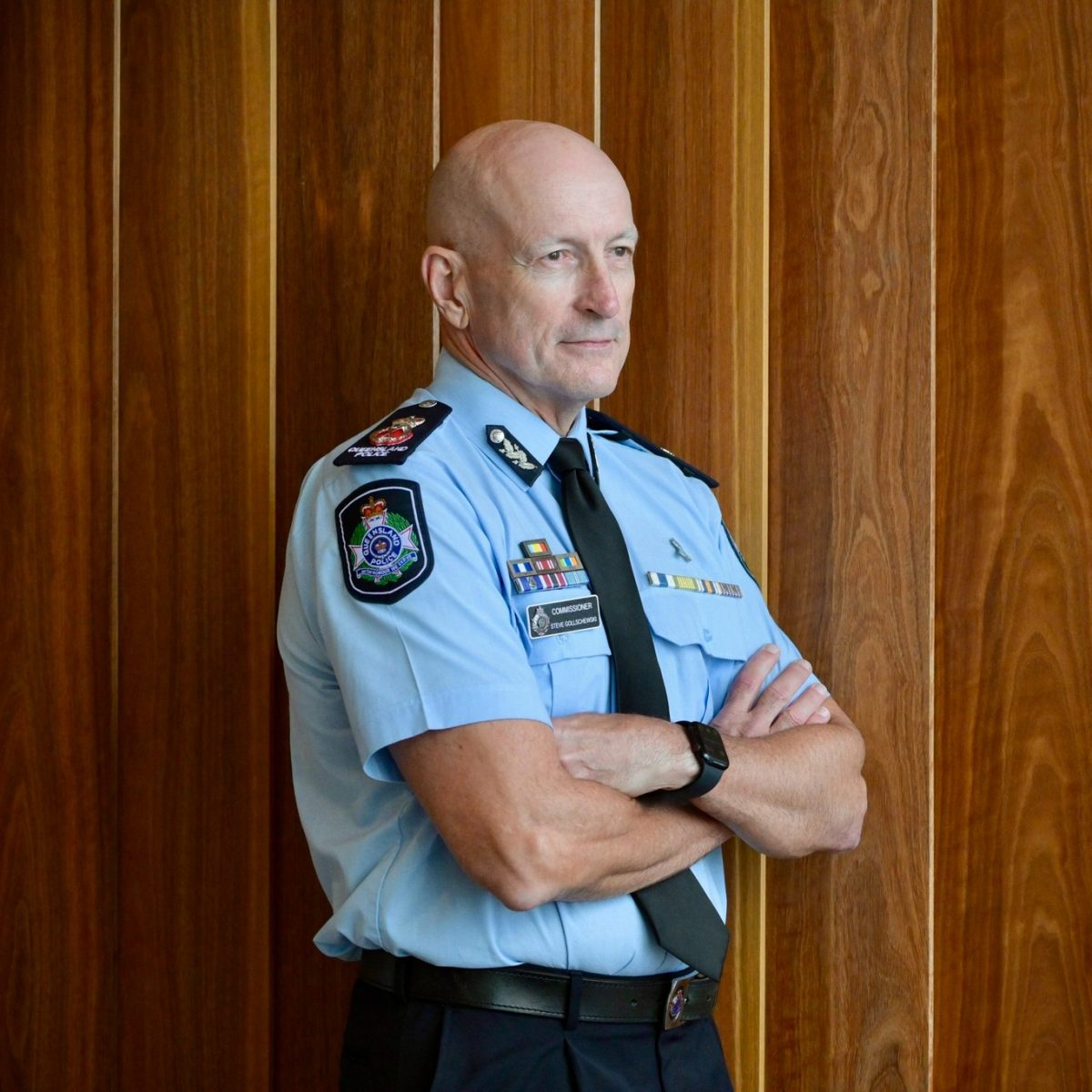
The inquiry has heard evidence from Aboriginal and Torres Strait Islander people, top public servants and Queensland Police Commissioner Steve Gollschewski. Photo: Facebook/Steven Miles.
As part of the State Government’s Truth Telling and Healing Inquiry, the Queensland Police Service (QPS) has established Taskforce Maiwar to support information gathering on the impact of colonisation on First Nations peoples.
Through its truth-telling sessions, hearings and investigation of historical records, the inquiry hopes to build understanding across the state and make recommendations to the government. It comes after the Victorian Government responded to its own version – the Yoorrook Justice Commission – earlier this year.
Joined by six directors-general to discuss the public service’s role in colonising Queensland, Police Commissioner Steve Gollschewski told the inquiry that it has set up a dedicated taskforce to assist.
“We are still developing our understanding of the QPS’s role in what occurred and how it still shapes us to this day,” he said.
“We acknowledge the recent independent commission of inquiry and the Queensland Police Service responses to the domestic and family violence which made findings about racist, sexist and misogynistic behaviour and I reaffirm there is no place for such behaviour in the Queensland Police.”
The Police Commissioner said Taskforce Maiwar had already begun digging into the past 160 years of records to understand the “true history” of QPS.
According to a Linkedin job listing, the taskforce will coordinate and assign tasks for the QPS Truth Telling and Healing team and regional investigators across the state. The team will also help the Taskforce as they lead healing activities with First Nations peoples and communities.
Led by an executive director, the team includes First Nations members with extensive policing and cultural knowledge to support their goal of strengthening ties with local communities. The listing claims this will be achieved by sharing information and developing initiatives in a collaborative approach “to prevent harm and together develop a safer Queensland for everyone”.
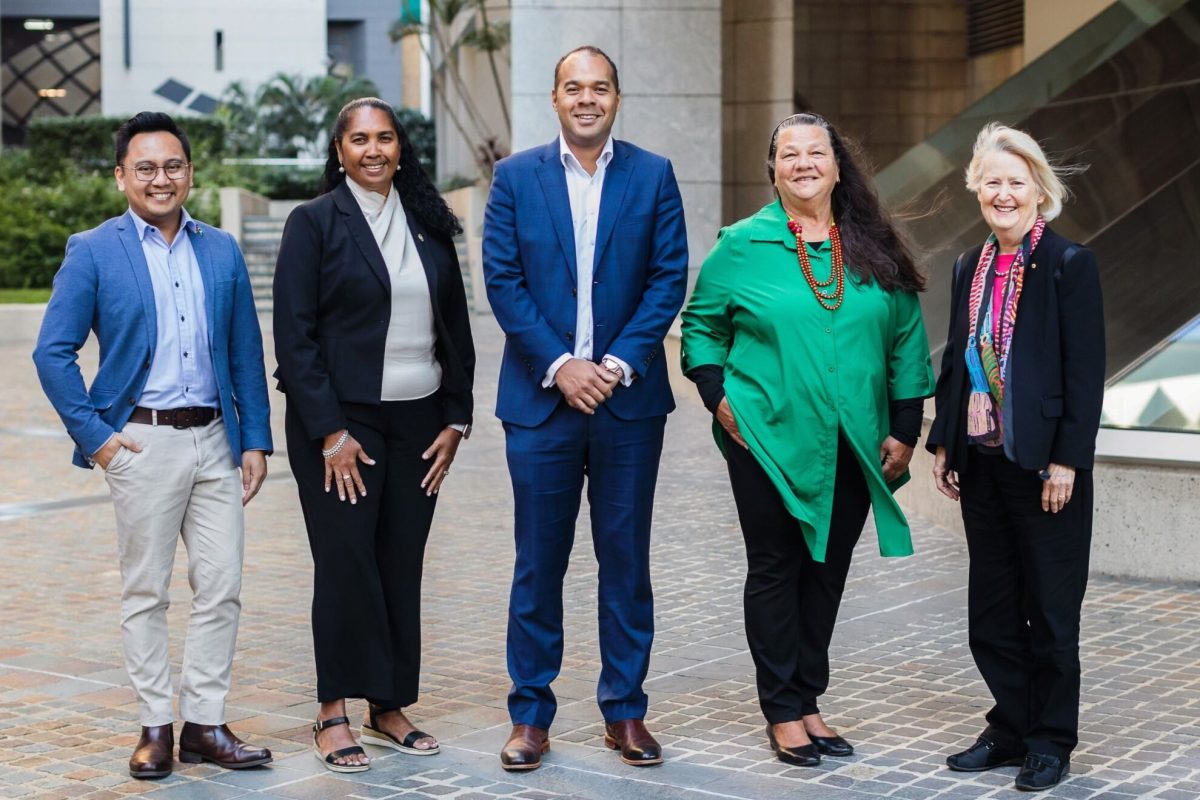
Inquiry members (L-R): Ivan Ingram, Vonda Malone, Chair Joshua Creamer, Cheryl Buchanan and Roslyn Atkinson AO. Photo: QLD Government.
During a hearing earlier this month, Director-general Clare O’Connor told the inquiry about what role mounted police and missions had in the colonisation of Queensland.
The experienced public servant has been at the head of four Queensland Government Departments since 2015, but now leads the Department of Treaty, Aboriginal and Torres Strait Islander Partnerships.
Her main contribution to the inquiry was on how Queensland still retains many of the records kept by public servants at the time.
“Reserve superintendents, managers and local protectors kept detailed records of the lives of their charges from birth to death,” said Ms O’Connor. “There was no regard for privacy, nor did Aboriginal and Torres Strait Islanders have any say in decisions that affected their lives.
“Many of these records are now held by the department and in the Queensland State Archives and are available to Indigenous Queenslanders.”
The records Ms O’Connor discussed include massacres conducted by state-sponsored paramilitary groups between the mid 1800s and 1904 – when they were officially disbanded.
Beyond 1875, the similarly state-sponsored Indigenous reserves were at first managed by Christian missionaries. However as the decades rolled by, they became the responsibility of the ‘Chief Protector of Aboriginals’, which held supreme control of “every Aboriginal and half-caste child”.
Queensland Parliament passed the Path to Treaty Act 2023 in May last year, which officially established the Inquiry on 26 April 2024 as it came into law.
The Act – like the Inquiry – is the first of its kind in the state and was co-designed between the Interim Truth and Treaty Body and the Queensland Government.
Under the Act, this Inquiry must:
- Conduct inquiries into and document the individual, familial, cultural and societal impacts and effects of colonisation on Aboriginal and Torres Strait Islander peoples by holding truth-telling sessions and hearings and inviting people to give documents and other evidence to the Inquiry
- Conduct research into, and promote community awareness and understanding of the impacts and effects of colonisation on:
- Aboriginal peoples, law and tradition
- Torres Strait Islander peoples, law and Ailan Kastom
- the general public’s shared understanding of the history of Queensland
- Provide advice and make recommendations to the Queensland Government in accordance with the Inquiry’s Terms of Reference.


